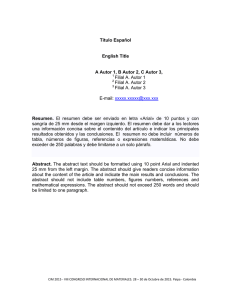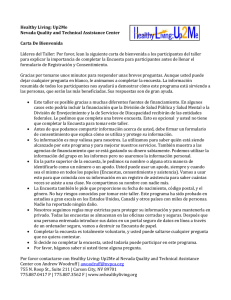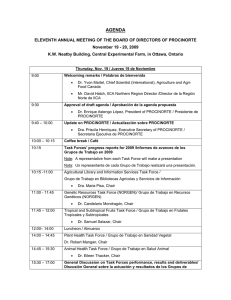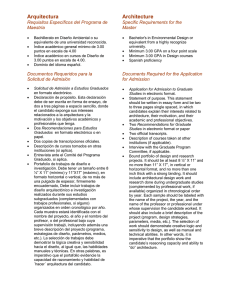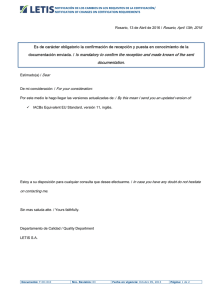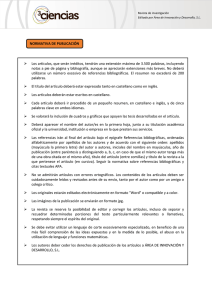ES ES DOCUMENTO DE TRABAJO
Anuncio
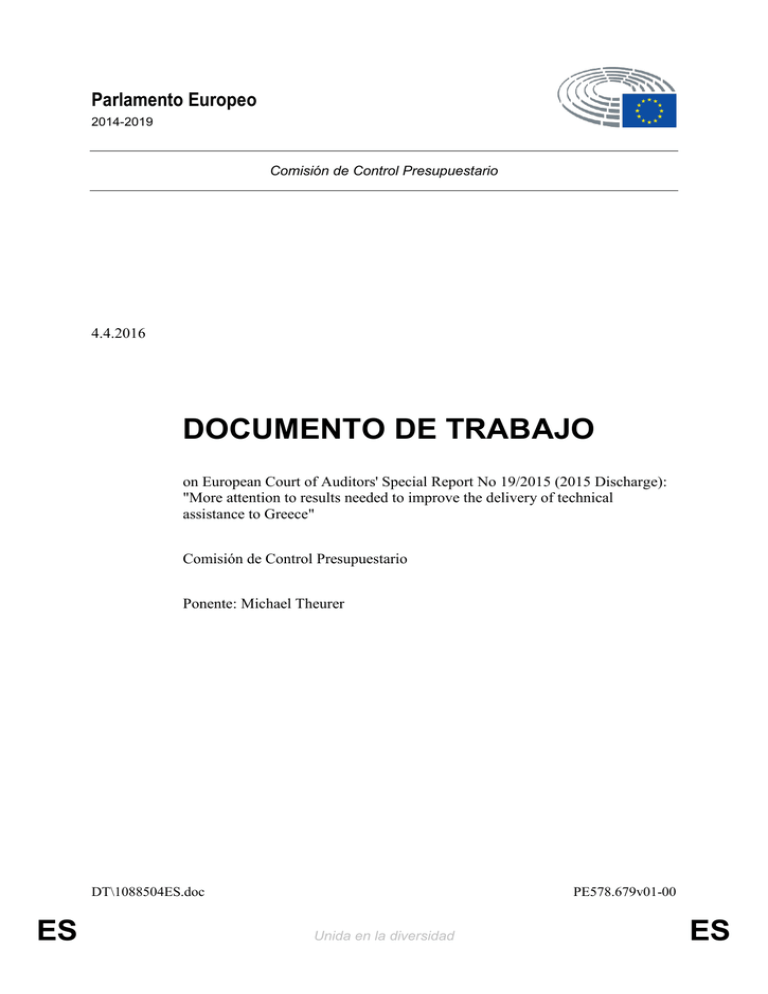
Parlamento Europeo 2014-2019 Comisión de Control Presupuestario 4.4.2016 DOCUMENTO DE TRABAJO on European Court of Auditors' Special Report No 19/2015 (2015 Discharge): "More attention to results needed to improve the delivery of technical assistance to Greece" Comisión de Control Presupuestario Ponente: Michael Theurer DT\1088504ES.doc ES PE578.679v01-00 Unida en la diversidad ES Introduction In 2010, facing severe financial crisis, Greece requested financial assistance from the international community. The response by the euro-area member states and the IMF was to put in place two successive economic adjustment programmes. In summer 2011 the Commission launched a programme of technical assistance (TA) coordinated by the Task Force for Greece (TFGR). The Task Force focused on supporting implementation of the reforms required by the economic adjustment programmes and accelerating the absorption of EU funds. The aim of the Court’s audit was to analyse how the Task Force fulfilled its goals. Specifically, the Court examined the Task Force's organisational and financing arrangements, how the technical assistance was actually delivered and monitored, and its contribution to the progress of reforms. ECA findings The ECA arrived at the conclusion that: – the Task Force provided the Commission with a flexible mechanism for coordinating a broad programme of technical assistance. The technical assistance was effectively delivered to the Greek authorities, but it did not always influence the progress of reforms; – the urgency of responding to the crisis in Greece meant that the Task Force was set up very rapidly, without a full analysis of other options and without a dedicated budget; – due to the financing from different budget lines, the Commission was not able to precisely determine the total commitments (and therefore total potential cost) of TA activities in Greece; – the Task Force applied a mix of technical assistance delivery modes, but some of them did not match with the nature of the assistance; – in terms of the overall absorption rate, during the period 2010 to September 2014 Greece's ranking among all EU Member States improved from 17th to 6th; – the Task Force did not systematically monitor the implementation or impact of the technical assistance recommendations; – good progress was made in all the audited policy fields, despite the political changes which occurred in the meantime. ECA recommendations In light of its findings the ECA recommended that: – the establishment of any entity for delivering TA should be based on a strategy with welldefined objectives. The strategy should define the nature and division of responsibilities between parties. It should be formally endorsed by the beneficiary Member State to guarantee ownership and efficient implementation; PE578.679v01-00 ES 2/4 DT\1088504ES.doc – the Commission should create a pool of external experts who could be deployed on an ad hoc basis on TA projects in Member States; – when designing TA programmes, the Commission should analyse the complexity that arises from involving multiple partners and the increased need for coordination resulting thereof. In specific policy fields it should aim at streamlining the number of partners in order to ensure a coherent methodology for the provision of TA; – TA actions should be prioritised following an assessment of their potential to bring about the strategic objectives. TA should be focused and operate through the most appropriate and effective implementation mode, in accordance with the existing legislative and regulatory framework, and taking into account the political context; – the Commission should select service-providers based on a comparative analysis of the available options. Contracts should clearly define the scope of deliverables and set measurable performance indicators; – the Commission should seek feedback from the beneficiary Member State(s) on the provision of TA. The implementation of TA should be systematically monitored in the light of objectives set. With regard to the activities of the TFGR, the Commission should carry out a comprehensive ex-post evaluation. These actions are crucial for assessing effectiveness and/or adjusting the delivery of TA; – aiming at the achievement of sustainable results, TA should focus on strengthening the capacity of national administrations. It should be delivered with a view to business continuity and the sustainability of reforms, which means anchoring them in local government practices. Recomendaciones del ponente para su posible inclusión en el informe sobre la aprobación de la gestión de la Comisión para 2015 1. Observa que, en el momento de elaborar el presente documento de trabajo, la Comisión ya había presentado su propuesta relativa al establecimiento del programa de apoyo a las reformas estructurales; se felicita de que la Comisión haya tenido claramente en cuenta las recomendaciones del Tribunal de Cuentas Europeo y espera que el programa de apoyo a las reformas estructurales surja como una importante herramienta para la asistencia técnica sobre la base de experiencia obtenida por el Grupo Especial para Grecia; 2. Le preocupa que la rápida constitución del grupo especial ad hoc fuera la causa de algunos de sus problemas operativos; pide que se lleve a cabo una evaluación completa de la situación al respecto y que se elabore un plan de acción sucinto y por etapas, vinculante y previo a cualquier proyecto de asistencia técnica; pide que en sus posteriores programas de asistencia técnica la Comisión Europea aplique un enfoque más planificado, incluido un mandato con fechas de inicio y finalización para los mandatos; 3. Destaca que la asignación de un presupuesto específico es una condición indispensable para el éxito de los programas de asistencia, tanto para los gastos de planificación como de racionalización, evitando así diferentes niveles de control y de normas que se han de cumplir, en relación con líneas presupuestarias separadas; DT\1088504ES.doc 3/4 PE578.679v01-00 ES 4. Observa que el grupo especial gestiona un número impresionante de proyectos que involucran a múltiples organizaciones socias opina que la incidencia de los programas de asistencia se podría mejorar racionalizando los programas, limitando el número de organizaciones socias y el alcance de los proyectos para reducir al mínimo los esfuerzos de coordinación administrativa y aumentar la eficiencia; 5. Lamenta que ni los Estados miembros beneficiarios ni el grupo especial proporcionaran a la Comisión informes periódicos de actividad; señala que la Comisión debería insistir en que se le presenten informes trimestrales de actividad sin excesivo retraso, así como un informe final completo en forma de evaluación ex post en un plazo de tiempo razonable tras la conclusión de los trabajos del Grupo Especial para Grecia; pide a la Comisión que realice sistemáticamente un seguimiento de la aplicación de la asistencia técnica con objeto de adaptarse a una asistencia técnica orientada a los resultados; 6. Pide a la Comisión, al Parlamento Europeo y al Consejo Europeo que aprovechen la oportunidad que les brinda la negociación del programa de apoyo a las reformas estructurales para el período 2017-2020 para examinar las buenas prácticas de los líderes en este ámbito; insta a la Comisión a que, junto con los Estados miembros, encuentre un sistema para contratar expertos directamente de los Estados miembros, evitando así un nivel adicional de complejidad y carga administrativa eludiendo las agencias nacionales; 7. Pide a los Estados miembros que den muestras de un mayor compromiso: mediante un enfoque basado en los resultados el Parlamento Europeo y los Estados miembros podrán prestar un mayor apoyo a través de sus comisiones encargadas de la supervisión presupuestaria. PE578.679v01-00 ES 4/4 DT\1088504ES.doc


